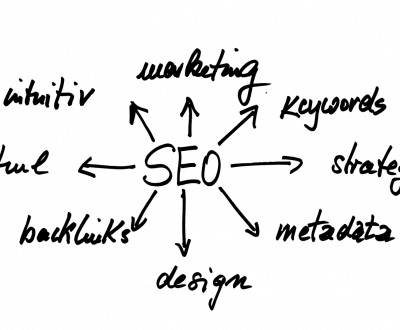How to Use SEO for Brand Awareness
Table of Contents
- Introduction
- The Power of Brand Awareness
- SEO: A Tool for Brand Visibility
- Optimising Your Website for Brand Recognition
- Leveraging Content Marketing
- Utilising Social Media for Brand Exposure
- Building Backlinks to Boost Brand Credibility
- Tracking Brand Awareness Progress
- FAQ in Schema Format
- Conclusion
1. Introduction
In today’s digital age, brand awareness is a cornerstone of business success. Establishing your brand as a recognisable and reputable presence in your industry can significantly impact your growth and customer loyalty. One powerful tool in your arsenal for achieving this is Search Engine Optimisation (SEO). This article will explore how to leverage SEO to enhance your brand awareness and visibility.
2. The Power of Brand Awareness
Brand awareness is the extent to which your target audience recognises and associates your brand with specific products, services, or values. It influences consumer decisions, fosters trust, and differentiates your business from competitors. In the online world, where consumers are constantly bombarded with information, building and maintaining brand awareness is essential.
3. SEO: A Tool for Brand Visibility
Search Engine Optimisation (or optimisation, as it’s known in UK English) is a digital marketing strategy that enhances a website’s visibility on search engine results pages (SERPs). SEO is a valuable tool for boosting brand visibility because it helps your website appear in relevant search results. When consumers find your site when searching for products or services in your niche, it not only drives organic traffic but also increases the chances of brand recognition.
4. Optimising Your Website for Brand Recognition
To optimise your website for brand recognition, focus on the following aspects:
- Keyword Strategy: Research and implement keywords that reflect your brand, products, or values. These keywords should be incorporated into your website content.
- On-Page SEO: Ensure that on-page elements, such as titles, meta descriptions, and headings, are optimised for search engines and provide clear information about your brand.
- Image and Video SEO: Use descriptive file names and alt text for images and videos, reinforcing your brand message.
- Mobile Optimisation: Make sure your website is mobile-friendly to cater to users on various devices.
5. Leveraging Content Marketing
Content marketing is a potent means of boosting brand awareness. To maximise its impact with SEO:
- Blog Posts: Publish blog posts that reflect your brand’s values and expertise. These posts can rank for relevant keywords and showcase your brand personality.
- Guest Blogging: Contribute guest posts to authoritative websites in your industry. It not only builds backlinks but also exposes your brand to new audiences.
- Infographics and Videos: Create visual content that communicates your brand’s message. Optimise these assets for search engines.
6. Utilising Social Media for Brand Exposure
Social media platforms are ideal for promoting brand awareness. Here’s how to make the most of them:
- Consistent Branding: Maintain consistent branding, including logos, colour schemes, and messaging, across all your social profiles.
- Engagement: Actively engage with your audience, responding to comments and messages promptly. Encourage user-generated content that showcases your brand.
- Content Sharing: Share blog posts, infographics, videos, and other content that reinforces your brand’s message.
7. Building Backlinks to Boost Brand Credibility
Backlinks are links from other websites to yours. They are valuable not only for SEO but also for establishing brand credibility:
- Guest Posts: Contribute guest posts to reputable websites in your niche with links back to your site.
- Collaborations: Collaborate with influencers or industry experts who can link to your content.
- Directory Listings: Ensure your brand is listed in relevant online directories.
8. Tracking Brand Awareness Progress
To measure your brand awareness progress through SEO, use the following metrics:
- Brand Mentions: Monitor online mentions of your brand on various platforms.
- Social Signals: Track engagement on social media, such as likes, shares, and comments.
- Organic Traffic: Analyse the increase in organic traffic to your website.
- Keyword Rankings: Check improvements in keyword rankings for branded terms.
- Conversion Rate: Measure how many website visitors convert into customers or subscribers.
9. FAQ
Brand awareness is the extent to which your target audience recognises and associates your brand with specific products, services, or values.
SEO helps your website appear in relevant search results, increasing the chances of brand recognition.
Focus on keyword strategy, on-page SEO, image and video SEO, and mobile optimisation.
10. Conclusion
In conclusion, brand awareness is a key driver of business success, and SEO is a valuable tool to enhance it. By optimising your website for brand recognition, utilising content marketing, making the most of social media, building backlinks, and tracking your progress, you can leverage SEO to establish and grow your brand’s presence in the digital landscape. Start your journey towards improved brand awareness today.
About us and this blog
We are a digital marketing company with a focus on helping our customers achieve great results across several key areas.
Request a free quote
We offer professional SEO services that help websites increase their organic search score drastically in order to compete for the highest rankings even when it comes to highly competitive keywords.
We offer a FREE Website Audit. No Charge, No Catch, simply add your website, the email address to send report. We will send you a website audit report highlighting any website issues, broken links, alt tags missing, duplicate titles etc along with a Google Analysis of your content.
Recent Posts
All Website Tags
- Advanced SEO Analytics
- AI and Machine Learning in SEO
- Algorithm Updates and SEO
- Algorithm Updates and SEO News
- Alt Text (Alternative Text)
- Analytics and Insights
- Anchor Text
- Audit
- Backlink Monitoring and Management
- Backlinks
- Black Hat SEO
- Brand Awareness
- Canonical URLs
- Content Creation Chronicles
- Content Marketing
- Content Marketing Corner
- Content Marketing for SEO
- copywriting
- CTR (Click-Through Rate)
- Digital Authority
- Digital Diagnostic
- Digital Diagnostic for SEO
- Digital Health Assessment
- Digital Marketing Trends
- Domain Authority DA
- Duplication
- E-Commerce SEO
- Email Marketing Mastery
- External Linking
- Google Core Update
- Google My Business GMB
- Heading Tags (H1, H2, H3, etc)
- Healthcare SEO Strategies
- Indexing
- Internal Linking
- Internal Linking Strategies
- International SEO Strategies
- Keyword Analysis and Optimisation
- Keyword Research and Analysis
- Keywords
- Link Building
- Link Building for SEO
- Link Building Strategies
- Link Building Techniques
- Link Building Tools and Tips
- Local SEO Spotlight
- Local SEO Strategies
- Market Research
- Marketing
- Marketing Mix
- Meta Tags (Title, Description)
- Mobile SEO
- Off-Page Optimisation
- Off-Page SEO
- On-page SEO
- Online Audit Insights
- Online Audit Insights for SEO
- Optimise Your SEO
- Optimise Your Website
- Organic Traffic
- Page Authority
- Page Load Speed
- Paid Search (PPC)
- Ranking
- Reputation Management and Online Branding
- Search Engine Optimising Service
- Search Ranking Analysis
- SEO
- SEO Analytics and Reporting
- SEO Diagnostic Lab
- SEO Evaluation Toolkit
- SEO for Beauty
- SEO for Blogs and Content Platforms
- SEO for Hair Salons
- SEO for Spas
- SEO for Startups
- SEO for WordPress Websites
- SEO Health Assessment
- SEO Health Check
- SEO Performance Checkup
- SEO Success Secrets
- SERP
- Site Performance Analysis
- Social Media Integration for SEO
- Social Media Strategies Unveiled
- Target Audience
- Technical SEO
- Technical SEO Demystified
- Video SEO for YouTube
- Web Presence Checkup
- Website Health Check
- White Hat SEO









